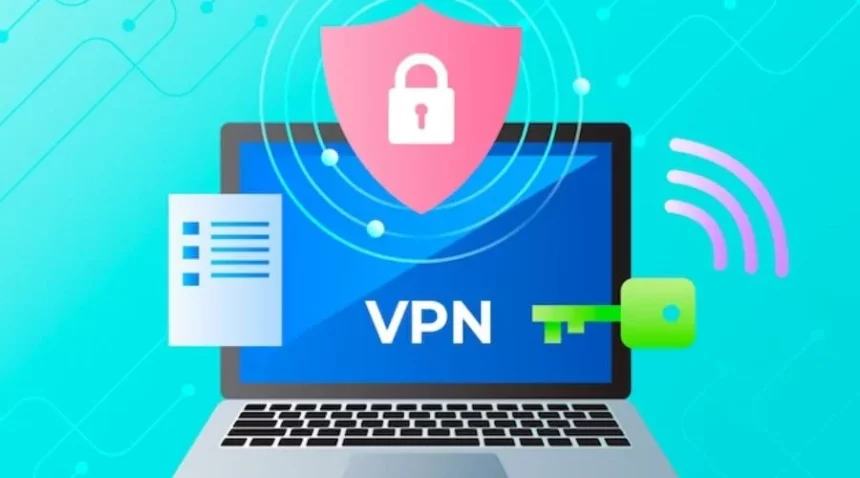In today’s digital age, the internet is an essential tool that we rely on for various activities such as online shopping, social media, and entertainment. However, with the convenience that the internet provides, it also poses significant threats to our online privacy and security. Online surveillance, cyber crimes, and data breaches are on the rise, and it is crucial to protect ourselves from these threats. This is where Privacy VPNs come in handy. VPN, or Virtual Private Network, is a service that encrypts and reroutes your internet traffic through a secure and private network, making it almost impossible for anyone to spy on your online activities. In this article, we will explore the reasons why Privacy VPNs are essential in today’s digital age and why you should consider subscribing to one.
The Importance of Online Privacy in Today’s Digital Age
In today’s digital age, our online activities generate massive amounts of data that are vulnerable to cyber attacks and surveillance. Our personal information, such as our location, browsing history, and online purchases, can be tracked and monitored by various entities, including hackers, government agencies, and internet service providers. This poses a significant threat to our privacy and security, as this information can be used for identity theft, fraud, and other malicious purposes. Therefore, it is essential to protect our online privacy and security by using a Privacy VPN.
The Risks of Using Public Wi-Fi and Unsecured Networks
Public Wi-Fi and unsecured networks are prevalent in public places such as coffee shops, airports, and hotels. While these networks provide convenience and accessibility, they also pose significant risks to our online privacy and security. Hackers can easily intercept our internet traffic on these networks and steal our personal information, such as usernames, passwords, and credit card details. Therefore, it is essential to use a Privacy VPN when accessing public Wi-Fi or unsecured networks.
How VPNs Protect Your Online Privacy and Data
A Privacy VPN works by encrypting your internet traffic and routing it through a secure and private network. This makes it almost impossible for anyone to spy on your online activities, as your internet traffic is encrypted and hidden from prying eyes. VPNs also have advanced features such as kill switches, which automatically disconnect your internet connection if the VPN connection is lost, preventing any data leaks. Additionally, a Privacy VPN can also mask your IP address, making it difficult for anyone to track your online activities.
- Advertisement -
The Different Types of VPNs Available
There are various types of VPNs available, including free VPNs, paid VPNs, and corporate VPNs. Free VPNs are usually limited in terms of features and server locations, whereas paid VPNs offer more advanced features such as multiple server locations, faster speeds, and better security. Corporate VPNs are designed for businesses and offer more advanced features such as remote access and centralized control.
Factors to Consider When Choosing a VPN Service
When choosing a VPN service, there are several factors to consider, including speed, security, server locations, and pricing. It is essential to choose a VPN service that offers fast speeds, strong encryption, and a wide range of server locations to ensure that you can access the internet quickly and securely. Additionally, it is crucial to choose a VPN service that offers a transparent and fair pricing model, with no hidden fees or charges.
Common Misconceptions About VPNs
There are several common misconceptions about VPNs, including that they slow down your internet speed, that they are illegal, and that they are only for tech-savvy individuals. However, these misconceptions are far from the truth. VPNs can actually improve your internet speed by reducing network congestion and improving latency. Additionally, VPNs are legal in most countries and are used by individuals and businesses worldwide. Finally, VPNs are designed to be user-friendly and accessible, even for individuals with little technical knowledge.
How to Set Up and Use a VPN
Setting up and using a VPN is a simple process that can be done in a few easy steps. First, you need to choose a VPN provider and subscribe to their service. Once subscribed, download and install the VPN software on your device. Finally, connect to a server location and start browsing the internet securely and privately. Most VPN providers offer user-friendly apps that make it easy to connect to a server location and start using the VPN.
Best VPN Services for Online Privacy and Security
There are several VPN services available, each with its unique features and pricing. Some of the best VPN services for online privacy and security include ExpressVPN, NordVPN, Surfshark, CyberGhost, and Private Internet Access. These VPN services offer fast speeds, strong encryption, a wide range of server locations, and user-friendly apps that make it easy to use the VPN.
Conclusion: Protecting Your Online Privacy with a VPN
In today’s digital age, protecting your online privacy and security is essential. With the rise of cyber crimes, data breaches, and online surveillance, it is crucial to take steps to protect yourself online. A Privacy VPN is a simple and effective way to protect your online privacy and security by encrypting your internet traffic and routing it through a secure and private network. By subscribing to a Privacy VPN, you can browse the internet securely and privately, without worrying about hackers, government agencies, or internet service providers spying on your online activities.


